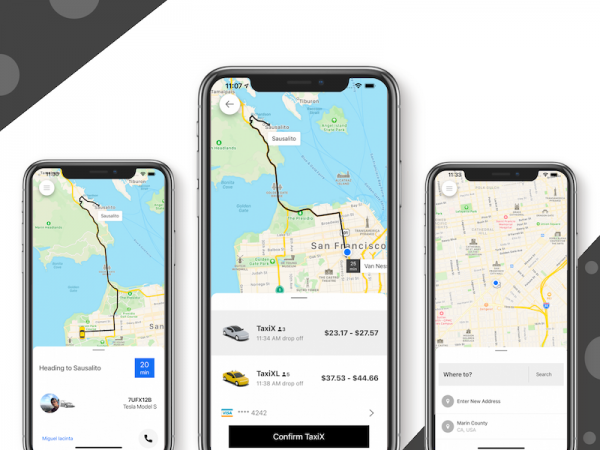Introduction
In today’s digital age, the choice between developing a web app or a mobile app is a crucial decision that businesses must make to ensure a strong online presence and cater to the diverse needs of their audience. As businesses navigate this decision-making process, understanding the advantages and limitations of both web and mobile applications is essential. This comprehensive guide explores the factors that businesses should consider when deciding which platform to develop first, shedding light on the dilemma of web app vs. mobile app development. With a focus on providing insights into the best practices, case studies, and seamless integration strategies, this article aims to assist businesses in making informed decisions while emphasizing the importance of reliable web application development services.
Understanding Web Apps
Web applications, also known as web apps, are software applications accessed through web browsers over the internet. They are versatile, offering cross-platform compatibility, which means users can access the same application across various devices and operating systems. Web apps are typically easier and more cost-effective to develop, making them an attractive choice for businesses looking to establish an initial online presence.
While web apps offer extensive accessibility and easier maintenance, they do have limitations. Dependency on internet connectivity and limited access to device features can impact the user experience, especially when compared to the capabilities of mobile apps.
Understanding Mobile Apps
Mobile applications, commonly referred to as mobile apps, are software applications specifically designed for mobile devices such as smartphones and tablets. Mobile apps provide a tailored user experience, leveraging the device’s features and functionalities. They can offer offline functionality, ensuring users can access the application even without an internet connection, enhancing user engagement and satisfaction.
However, mobile apps come with challenges of their own, including platform-specific development requirements and higher development costs. Choosing the right platform (iOS, Android, or both) adds complexity to the decision-making process, making it essential for businesses to weigh the pros and cons carefully.
Factors to Consider When Choosing Between Web and Mobile Apps
Several factors play a pivotal role in the decision-making process for businesses:
Target Audience Analysis: Understanding the preferences and behaviors of the target audience is crucial. If the audience predominantly uses mobile devices, a mobile app might be the preferred choice.
Purpose of the Application: The functionalities and goals of the application dictate the choice between web and mobile platforms. Apps requiring access to device-specific features might be better suited for mobile platforms.
Budget Considerations: Financial constraints often influence the decision. Web apps generally require a lower budget and have faster development timelines, making them a viable option for businesses with limited resources.
Timeline and Urgency: The urgency of the project and the need for a quick launch can influence the decision. Web apps can be deployed more rapidly, providing a swift solution for immediate requirements.
Future Scalability and Updates: Long-term planning is essential. Considerations for future scalability and updates should align with the chosen platform to ensure seamless growth and adaptability.
Benefits of Developing a Web App First
Developing a web app first offers several advantages, making it an attractive choice for businesses:
Lower Development Costs and Faster Deployment: Web apps generally have a lower development cost and quicker deployment timeline, allowing businesses to establish an online presence promptly.
Broader Audience Reach: Cross-platform compatibility ensures that web apps can be accessed on various devices and operating systems, reaching a wider audience.
Easier Updates and Maintenance: Web apps can be updated seamlessly without requiring users to download and install updates manually. This ease of maintenance ensures a consistent user experience.
Benefits of Developing a Mobile App First
Choosing to develop a mobile app first also offers compelling benefits, enhancing user experience and engagement:
Enhanced User Experience: Mobile apps provide a tailored user interface, leveraging device-specific features and ensuring an optimized user experience.
Offline Functionality: Mobile apps can offer offline functionality, allowing users to access essential features even in the absence of an internet connection, increasing user satisfaction.
App Store Visibility and Marketing Opportunities: Mobile apps benefit from visibility in app stores, providing marketing opportunities and increasing discoverability among potential users.
Best Practices for Seamless Integration
Seamless integration between web and mobile platforms is essential for providing a consistent user experience. Businesses should focus on the following best practices:
Responsive Design: Ensure the web app is designed responsively, adapting to different screen sizes and orientations, offering a consistent experience across devices.
Unified User Interface: Maintain a unified user interface and branding elements across both web and mobile platforms, ensuring continuity in the user experience.
Data Synchronization: Implement robust data synchronization mechanisms to ensure data consistency between web and mobile apps, enabling users to seamlessly switch between platforms.
User Feedback and Testing: Gather user feedback through testing and iterate on the design and functionality based on user preferences and behavior, refining the applications for optimal user satisfaction.
Conclusion
In conclusion, the decision between developing a web app or a mobile app first is a critical one, shaping the digital presence of businesses and influencing user engagement. By considering factors such as the target audience, application purpose, budget, timeline, and future scalability, businesses can make informed choices. Web applications, with their cross-platform accessibility and cost-effectiveness, offer a practical starting point for many businesses. On the other hand, mobile applications, with their tailored user experience and offline functionality, provide enhanced engagement opportunities.
Ultimately, the choice between web and mobile apps should align with the unique goals and requirements of the business. Regardless of the chosen platform, businesses must prioritize user experience, seamless integration, and consistency across platforms. By partnering with reliable web application development services, businesses can navigate this decision-making process effectively, ensuring the successful development and deployment of their digital applications. The key lies in understanding the needs of the audience, leveraging the strengths of each platform, and delivering a cohesive user experience that resonates with users, fostering long-term relationships and driving business growth.

